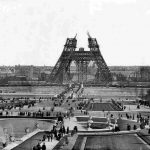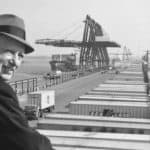Throughout his life, Tesla devoted himself to unraveling science’s greatest puzzles. The brilliant inventor had a remarkable journey, introducing innovations like alternating-current electricity and envisioning a future of “wireless communication.”
Sadly, his final years turned somber. He passed away alone and impoverished in 1943 in New York City, leaving behind numerous unanswered questions and unrealized potentials.
Let’s explore Nikola Tesla’s last known photograph and the story of his final moments.
The making of the photo
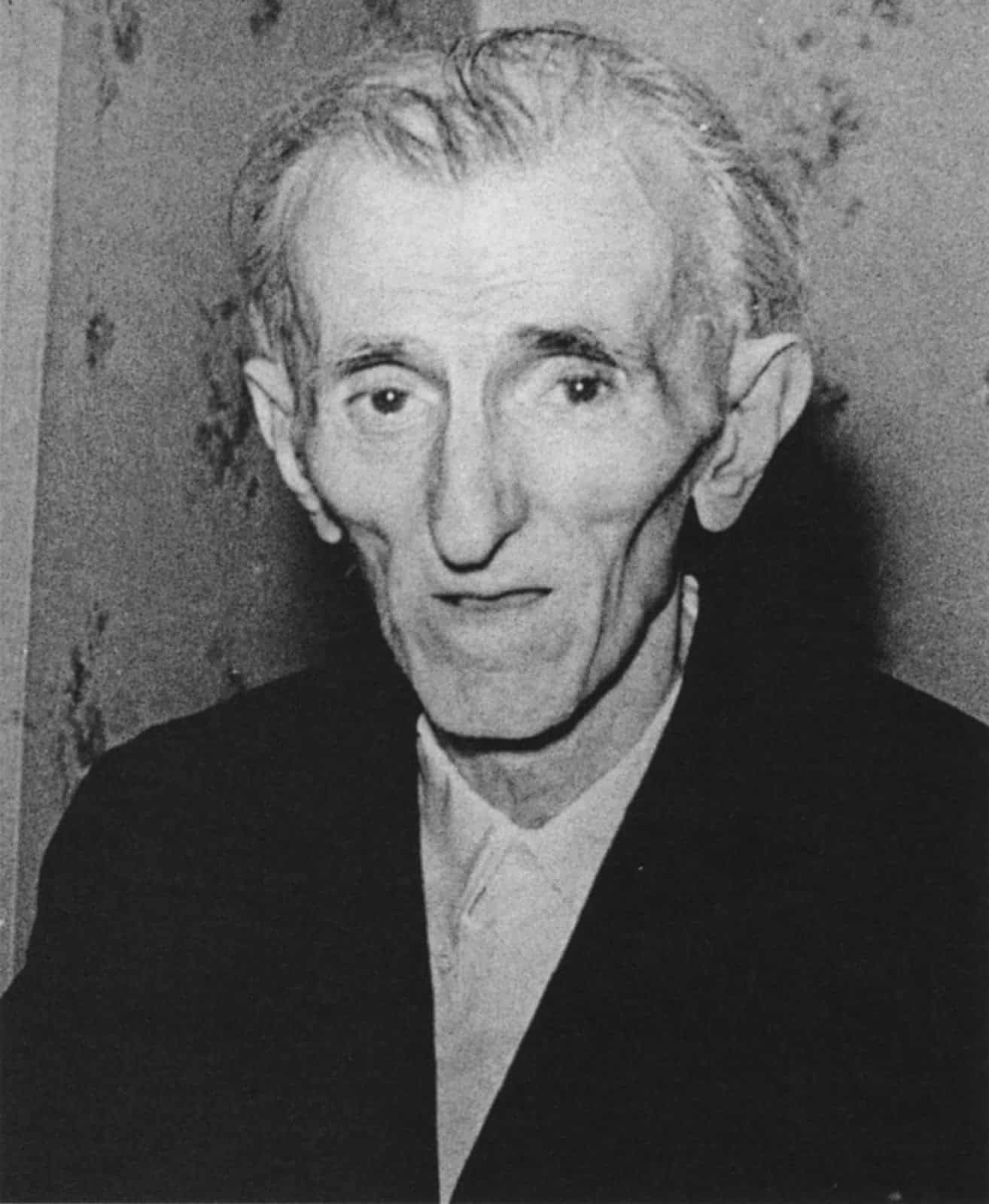
The final known photograph of Nikola Tesla, reportedly taken on January 1, 1943, captures a poignant moment near the end of his life.
At that time, Tesla had adopted a vegetarian diet, sustaining himself on milk, bread, honey, and vegetable juices. He often spent his days in a park, surrounded by pigeons, creatures he cherished deeply.
Tesla immersed himself in complex mathematical equations and scientific puzzles during sleepless nights.
Descent into poverty and mental illness before dying
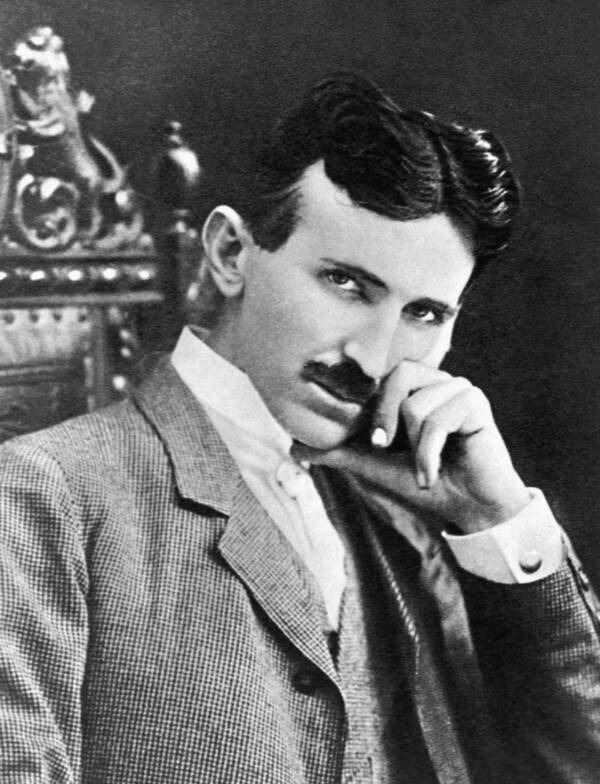
By then, much of the excitement surrounding Tesla’s inventions had faded. He had lost the race to invent the radio to Guglielmo Marconi in 1901, and support from investors like J.P. Morgan had dried up.
As the world turned away from Tesla, he withdrew into himself. By 1912, he had become increasingly obsessive. He counted his steps, demanded 18 napkins on his table, and fixated on cleanliness and the numbers 3, 6, and 9.
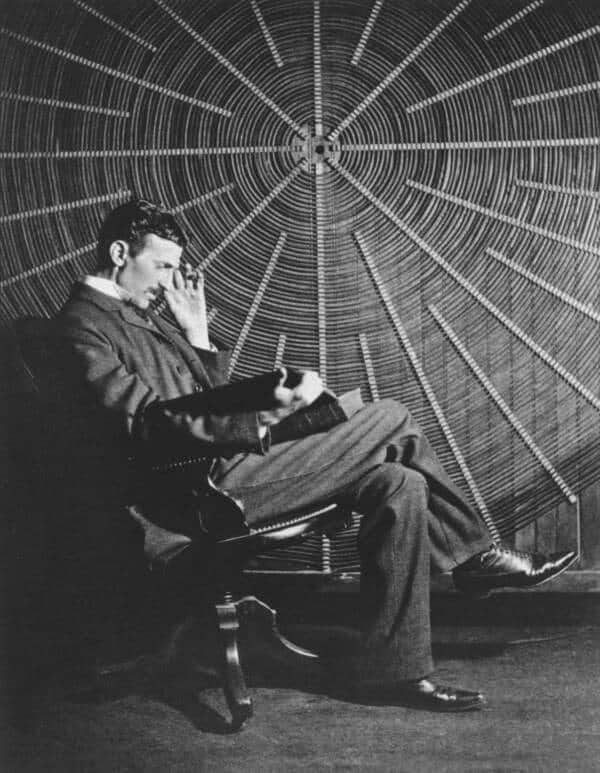
Despite this, Tesla found solace in an unusual way.
Moving between budget hotels, Tesla spent more time with pigeons than people. One white pigeon stood out. “I loved that pigeon as a man loves a woman,” Tesla wrote. “As long as I had her, life had purpose.”
When the white pigeon died in 1922, appearing to him in a dream with eyes like “two powerful beams of light,” Tesla believed his own life was over. He told friends his life’s work was complete.
Nevertheless, Tesla continued to work and care for New York City’s pigeons for another 20 years.
Tesla’s tragic death
On January 7, 1943, at the age of 86, Tesla passed away alone in Room 3327 of the New Yorker Hotel.
His body was discovered by a maid named Alice Monaghan, who disregarded the “do not disturb” sign Tesla had hung on his door two days earlier. Assistant Medical Examiner H.W. Wembly determined that his death was caused by coronary thrombosis.
Tesla’s remains were taken to Frank E. Campbell Funeral Home on Madison Ave. His close friend, Hugo Gernsback, commissioned a death mask – now housed at the Nikola Tesla Museum.
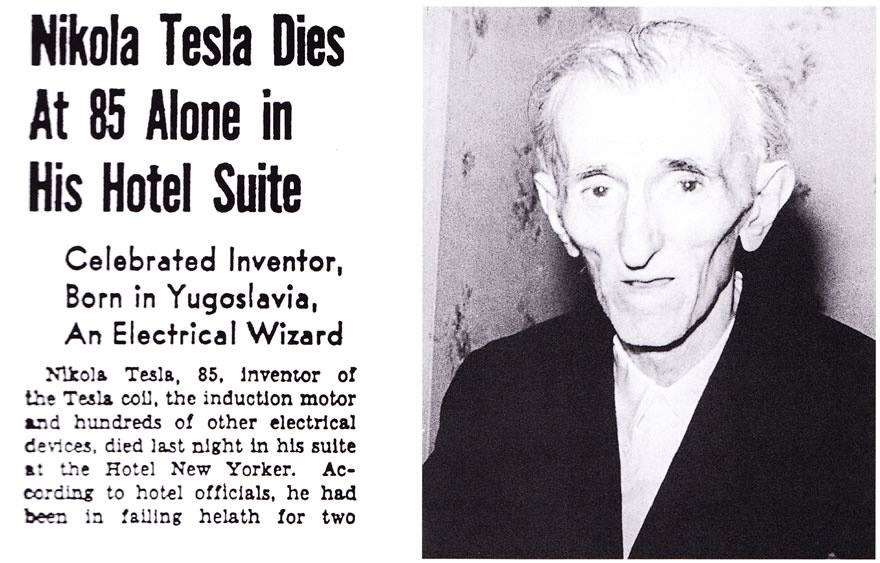
Shortly after, the FBI instructed the Alien Property Custodian to seize Tesla’s belongings despite his American citizenship.
All of Tesla’s possessions from the Hotel New Yorker and other New York City hotels were moved to the Manhattan Storage and Warehouse Company under the Office of Alien Property seal.
M.I.T. professor John G. Trump inspected Tesla’s items, finding no hazards, noting Tesla’s recent work focused on speculative and philosophical ideas in wireless power.
Mayor Fiorello La Guardia aired a eulogy by Louis Adamic on WNYC radio on January 10, 1943, accompanied by violin pieces. Tesla’s state funeral at the Cathedral of Saint John the Divine on January 12 drew two thousand mourners.
Tesla was cremated at Ferncliff Cemetery in Ardsley, New York, followed by a second service at Trinity Chapel in New York City the next day.

